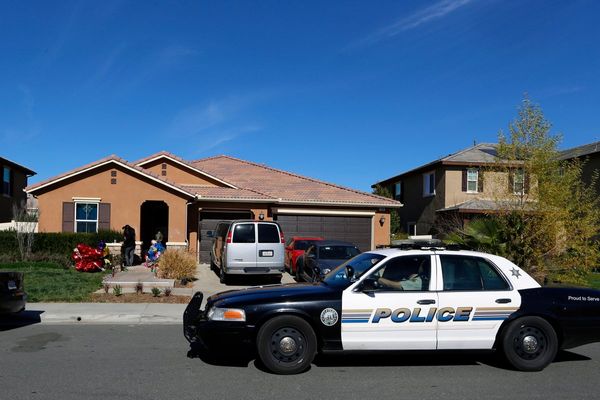Before the end of the calendar year, the plan is for the Welsh Rugby Union to have an independent chair and a new chief executive in place.
The successful candidates will be at the helm of a governing body which has been in freefall over the past year, following accusations of a toxic culture within its organisation, poor results for a struggling men's national team on the eve of a World Cup, and a regional game facing financial crisis.
Originally, there was a requirement for one of these roles to be filled by a woman but it has been changed to an aspiration rather than a compulsory directive. Prior to the extraordinary general meeting in March where governance reform was backed by member clubs, the WRU said changes to the Board composition would be made "under the aspiration that at least five of the 12 directors will be women".
WalesOnline exclusively revealed a number of candidates who have been sounded out last week with Dragons chair David Buttress, football bigwig Steve Dalton, former Wales centre Andy Marinos and current acting CEO Nigel Walker in the frame (read the full story here).
With these appointments set to be made over the coming months, we assess the most urgent areas in Welsh rugby which are in need of fixing:
Culture
The WRU have come under fire in recent months over allegations of institutional misogyny and sexism, with former chief executive Steve Phillips resigning in January over the scandal.
In response to this, an independent review panel has been established with former Court of Appeal judge Dame Anne Rafferty at its helm. The panel's role is to investigate the allegations of sexism, misogyny, homophobia and racism and to understand how the WRU can be open to change so as to ensure that the highest standards are identified and upheld. The panel began its work on February 13, with the WRU previously saying the findings and recommendations were intended to be published in full - unlike a previous review into the women's performance set-up which preceded players turning professional in 2021.
These fresh recommendations need to be implemented in full.
Elsewhere, the relationship between the union and regions has been described as having a parent/child dynamic. It needs to improve, although this works both ways.
Relationships need to be built at all levels and behaviours of union senior managers is crucial. The independent chair and CEO need to decide what the culture of the organisation is going to be, and work together to implement it from board level through its staff.
Review financial situation
These are difficult times financially for rugby as a whole, not just for the game in Wales. There is always an argument being had somewhere in Welsh rugby about the need to put more money into certain areas of the game, but that is anything but straightforward.
A new six-year financial agreement between the WRU and the four professional sides was signed in March, aimed at giving the game some stability, but in reality it does nothing more than kick the can down the road.
The regions' playing budgets will get slashed to £4.5million for the 2024/25 season, which is roughly three times less than what some of the Irish provinces spend on squads, while player wages are being driven down. To be fair, the WRU and the regions have to cut their cloth accordingly to ensure all four sides survive - if not thrive.
But the new independent chair and CEO will surely revisit the six-year deal, and potentially amend it. Could the WRU divert non-core assets, such as selling their stake in The Parkgate Hotel, or would they lose too much money doing this? They could certainly look to cut central overhead costs, especially considering they have asked the regions to do so.
The WRU also need to review the debt, with the regions currently owing the Welsh Government £20m taken out to ensure they survived Covid. A new finance director will also need to be appointed, with a deep-dive into the debt component and whether it can be restructured in any way surely a top priority.
Develop a new strategy for whole of Welsh rugby
When Professional Rugby Board chair Malcolm Wall told WalesOnline everything needed to be stripped back financially to make the game more sustainable, nobody could argue with that. Read the full interview here.
Wall said the game was at "base camp" as Welsh rugby looked to start climbing the mountain, but there needs to be more transparency. How are they going to climb Everest? What equipment will they use, and what's the plan when they run out of oxygen half way up the mountain?
As always, the devil is in the detail, and Welsh rugby's shareholders, including the public who have been kept in the dark, deserve transparency.
To be fair to the WRU, they pushed through significant governance changes at an the EGM two months ago, and these must now be enacted as quickly as possible.
The first thing the independent chair and CEO must do is outline a plan on how to get the men's national side winning again, how to get two regions competing for silverware each year, how to continue improving the women's game, and how to improve participation among other things. It all needs to be transparent, and plans made public so they can be held to account.
Regions
There is no doubt the success of the men's national side is intrinsically linked to the health and wellbeing of its professional clubs or regions. There is fault on both sides but the regional game has been allowed to wither away for a number of years, and the rot has finally spread to Gatland's national side.
But there is no point playing a blame game: the past is the past, and both parties need to work together to fix these issues.
It should be a strategic aim of the WRU to have successful regions competing for silverware, but how do you achieve this?
You can't get away from the fact they need more money to be able to compete with many of their competitors, while the WRU are absolutely right to focus their efforts on developing a a better player development pathway because the current one stopped working years ago.
The next CEO needs to be prepared to do some unpleasant things for the greater good of the game. The sad fact is there is not enough money or players of the sufficient standard in Wales to run four successful professional sides. There is a strong argument they should cut down to two highly-funded regions, with one development side. The next CEO needs to act decisively and ruthlessly for the greater good of the game in Wales.
Restructure community game
Let's open another can of worms. The community game is the lifeblood of the game in Wales, and is just as important as the professional game. However, the harsh reality is Wales does not have 300 fully resourced clubs.
A high-ranking member of the WRU told WalesOnline up to 40% of matches were called off in the community game this season, which suggests we have closer to 200 community clubs. Wouldn't it be better if there was a consolidation of clubs?
There are too many clubs who are too close to each other not being able to run teams properly so there is a strong argument to say they should be combined. The WRU can't force them to do this but they could be strongly encouraged to do so for the greater good of the game in this country.
Women's rugby
Acting WRU CEO Nigel Walker deserves huge credit for the way he has pushed forward the women's game in Wales in his previous role as performance director. After years of contracts being promised, he actually delivered on that just a few months into his post.
With 25 players now on full-time professional contracts, up from 12 eighteen months ago, one would expect to see the national side continue to improve over the next few years. Under the guidance and stability of head coach Ioan Cunningham, Wales Women have improved their attack and their forwards are dominating. They are up to their highest world ranking of sixth after finishing a second consecutive Six Nations in third place, which saw them qualify for the top tier of World Rugby's new global competition WXV this autumn. Playing against the likes of England, France and New Zealand for at least the next two autumn tournaments will undoubtedly push Wales further in the right direction.
But make no bones about it, there is more work which needs to be done.
The women's pathway has been resurrected, with U18s rugby being played and three new academy-standard development centres being launched in Cardiff, Swansea and Colwyn Bay to help foster the next generation of talent. But an U20s programme needs to come to fruition again.
As for elite domestic competition, the inaugural Celtic Challenge - staged this spring with three teams, from Wales, Ireland and Scotland - was a step in the right direction, but for Wales Women to truly thrive and be sustainable on the national stage, players need access to top-level competition without having to travel to England to compete in the Premier 15s. It is currently the highest level of club rugby available to Wales internationals, who pretty much all play in England. The travel and time commitments alone, especially for non-contracted players, are enough to put potential stars of the future off. That needs to change, especially if the RFU enforce a England-qualified squad quota in the future.
With regards further growth, the WRU need to put a lot more emphasis on the grassroots level by encouraging more clubs to have women's sections. Realistically, the next CEO needs to do this through financial incentives such as providing funding for things like training kits, and pushing through more female coaches.
There also needs to be a much closer link between clubs and schools, with girls having equal access to rugby opportunities during their school years a far off but not unachievable prospect if given time.
Welsh Premiership
When David Moffett took the game regional back in 2003, the then-Llanelli Scarlets head coach Gareth Jenkins said the semi-professional Welsh Premiership should be Wales' version of the Mitre 10 Cup in New Zealand. But it's a million miles away from its New Zealand equivalent, and hasn't been resourced properly.
It also has a confused identity. Is it top of the community game or part of the professional development pathway? Each club would give a different answer if you asked them this question.
The WRU have set up initial plans for a new eight-team "elite" league to bridge the gap between the Premiership and the regional game. Crucially, this would be under the control of the Professional Rugby Board rather than the Community Game Board if it was to get the go-ahead.
This isn't to say there isn't a lot of good work being done at Premiership level but it's clear for all to see the gap between semi-professional and professional level needs to be bridged. The next CEO needs to decide how to do this.
READ NEXT:
The new life of the infamous Welsh rugby enforcer who faced up to his thuggery
Dragons in talks with Leigh Halfpenny over new job as they target Wales team-mate
Major Welsh rugby sponsor pulls out of future investment in game until 'issues resolved'
The rise again of iconic Welsh rugby club who nobody can beat once more
Warren Gatland's hardest choices when he cuts players from World Cup squad







